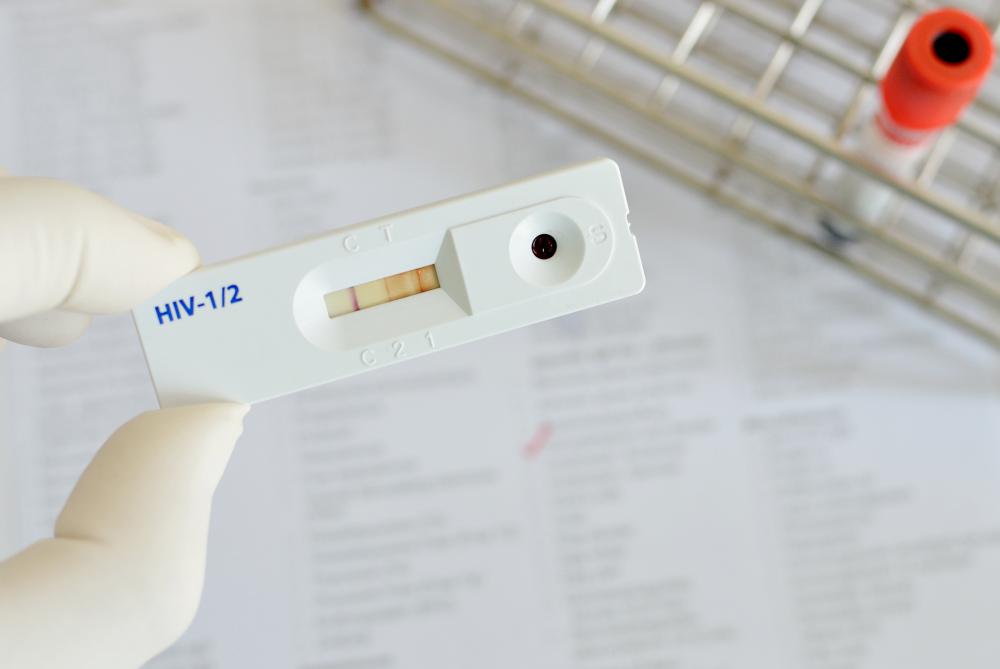At WiseGEEK, we're committed to delivering accurate, trustworthy information. Our expert-authored content is rigorously fact-checked and sourced from credible authorities. Discover how we uphold the highest standards in providing you with reliable knowledge.
What are Western Blot Antibodies?
Western blot antibodies are large Y-shaped proteins, or immunoglobulins, produced to use in the Western blot immunoassay, a test to detect an associated protein in a tissue culture. Many companies specialize in producing and providing antibodies to labs that use the Western blot method. There are two types of Western blot antibodies that can be produced in the lab: monoclonal and byclonal. The method and type of antibody produced are dependent on how the antibody reproduces naturally within the host body. During Western blot testing, a process called gel electrophoresis is used to separate proteins that are native to the tissue sample from targeted Western blot antibodies, leading to positive identification.
Almost any substance can be used to produce a monoclonal antibody that will bind to its related protein in a Western blot culture. Polyclonal antibodies are produced in much of the same way, but the process is more complicated in that the antibodies need to be harvested from immune B-cell resources instead of being simply cloned from a parent cell. The growing technology of producing immunoglobulin from varied substances is considered an invaluable tool in biochemistry, molecular biology, and medicine. Western blot analysis can detect the proteins associated with HIV, Lyme disease, and Creutzfeldt-Jakob Disease—Mad Cow Disease—, which leads to doctors being able to make a definitive diagnosis earlier in the course of disease progression. In addition to these applications, forensic science can also use Western blot antibody technology to identify blood or other substance samples at a crime scene.

Regardless of its application, the process of identifying a targeted protein in a tissue sample begins with reproducing a quantity of the antibody from a known source. Monoclonal antibodies can be produced from existing culture, but the process to produce polyclonal antibodies is significantly more time-consuming. The process typically involves injecting a host animal, like a mouse or goat, with either inactive or live particulate, at which point the animal’s B-lymphocytes produce immunoglobulins that are specific to the antigen. Next, detergents and buffers are added to the sample that will prevent the digestion of the immunoglobulins by any native enzymes, and gel electrophoresis is used to separate the proteins by molecular weight or isoelectric charge. The Western blot antibodies are now ready to undergo the “blotting” process, which is the transfer of the antibodies to a membrane while taking note of the specific blot patterns produced during the transfer that are unique to the protein being identified.
AS FEATURED ON:
AS FEATURED ON:













Discuss this Article
Post your comments